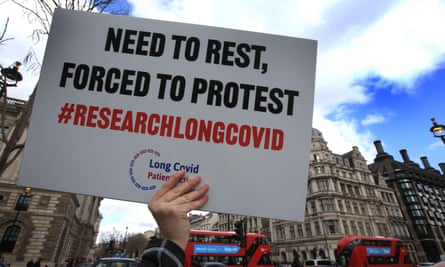Recent headlines have been flagging that Covid may be coming back, but, as weary as we all may be of this pesky virus, the truth is that it never really went away. Unlike viruses such as flu, there is no evidence that Covid has settled into a seasonal pattern. Its constant presence means that it has plenty of opportunity to gather new mutations that continue to make it worrisome.
While we can limit the likelihood of exposure by enhancing ventilation or wearing masks, vaccination remains an important cornerstone of protection. As such, the plans to offer autumn vaccine boosters are really important. The Joint Committee on Vaccination and Immunisation (JCVI) has the tricky task of making decisions about the UK’s booster plans. Factors such as population susceptibility and infection severity are typically considered, but this autumn, the JCVI “has begun to include cost-effectiveness considerations in the development of its advice”.
This has meant that, whereas the autumn 2022 booster programme targeted over-50s for both flu and Covid, this autumn will see a more limited offer of both vaccines. Only those over the age of 65, carers, frontline healthcare workers and the clinically vulnerable will be eligible for free boosters. Flu vaccines should be available to purchase by the public but, as yet, Covid vaccines will not be. The major effect of narrowing the eligible group is that all over-50s who were previously eligible will now be at least one year out from their last booster.

This much reduced vaccine offer does pose the question: what was considered in the cost-effectiveness analysis? A cost-benefit analysis of doses administered against hospitalisation and excess deaths is clearly vital; but what about considering the cost of lost working days, reduced school attendance and new cases of long Covid? Not only that, but also the sheer devastation experienced by those struggling with severe illness and the exhaustion of frontline workers in an overstretched NHS.
The JCVI’s statement indicates that it considers there is too much uncertainty regarding the significance of post-Covid syndromes – and these were not factored into the cost-benefit analysis. This is rather surprising given the numerous scientific studies that have shown the impact of long Covid on health. An estimated 2 million people in the UK live with long Covid – of whom approximately 700,000 developed the condition in the so-called “mild” era of Omicron. Evidence has also been accumulating of the increased risks of long-term conditions such as autoimmune diseases, type 1 diabetes and cardiovascular disease following Covid infection. Each subsequent reinfection with Covid poses a risk of post-Covid conditions – and reinfections in those who already have long Covid can worsen their symptoms and affect their overall recovery. All of this risk can be markedly reduced by vaccination.
As well as the risks to health there is another issue: the more infections we have in a population, the greater the opportunity the virus has to keep mutating. Vaccination can, to an extent, reduce this. Unfortunately, fewer preventative measures have seen the virus develop an array of mutations, such as the EG.5 (Eris) and the BA.2.86 (also known as pirola) variants. In particular, BA.2.86 has acquired over 30 mutations, including some that will help it evade our immune system.

The emergence of this variant has prompted a change in the planned booster schedule – it has been moved forward from October to start across the UK within the next few weeks. While welcome, this move, along with confusing messages about the fees paid to GPs for giving vaccines and when they should be given, has caused chaos at GP surgeries in England.
Since BA.2.86 was identified, researchers have been working apace to understand just how immune-evasive it is. New data is coming in from researchers across the world almost daily. BA.2.86 seems to be better at dodging our immune system, but it looks as though antibodies to the XBB variants (which circulated earlier this year) give the best protection. This is great news for the US, which announced earlier this year that its booster programme would use an XBB variant as the basis for its vaccine, but what about the UK? Just a few days ago, theMedicines and Healthcare products Regulatory Agency (MHRA) announced that it had approved a vaccine that targets Omicron XBB.1.5. This is excellent news, but with vaccinations now scheduled to start next week, it is unlikely that the Omicron XBB.1.5 vaccine will be rolled out in time to be used. Published plans indicate that the UK will stick to existing stocks, including the bivalent Original/Omicron BA.4-5 vaccines. While these will offer some protection, and are certainly much better than no vaccine at all, they are predicted to be less effective against BA.4.5. However, they will still protect against other circulating variants.
Annual booster programmes are expensive and challenging to deliver, and public compliance with the Covid programme is already dwindling, with only 40% of eligible people in London taking up the spring booster offer. Funding for vaccination campaigns and education have been reduced and disinformation on social media is rife. It is important to support people to make informed decisions about vaccines.
It is also notable that countries such as the US are investing in research to develop solutions, such as nasal vaccines, that may give more durable protection. A more long-term approach that considers education, greater investment in vaccine development and the risks of the longer term impacts of Covid would be a welcome development for the UK.
